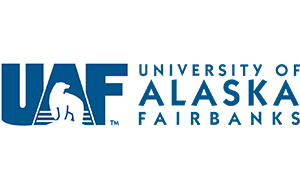
March 3, 2021 | by Admin
Saving lives in Fairbanks, a PulsePoint at a time
By Doug Schrage, fire chief of the University of Alaska Fire Department in Fairbanks.
Every day, people die when their heart stops pumping because of heart disease and other causes.
In the Fairbanks area alone, more than 50 people die annually from cardiac arrest. Many times, there are people nearby that are trained in cardiopulmonary resuscitation or CPR. CPR can sustain a life in the crucial first few minutes following a cardiac arrest. The problem is that the people trained in CPR often aren’t aware that somebody nearby needs their help.
We are fortunate that in Fairbanks we have ambulances staffed with highly trained, well-equipped emergency medical technicians and paramedics, a first-class 911 system to dispatch them, and a superb emergency department at our community hospital. Even in the very best system, though, it takes several minutes for someone to dial 911 and for emergency medical personnel to arrive at the scene of the emergency.
We know that the best chance for survival from cardiac arrest exists when CPR is started immediately and continued until the medical professionals arrive. The chances of survival are improved even more when a nearby automatic external defibrillator, or AED, is used.
Thankfully, the greater Fairbanks area is a PulsePoint-connected community. PulsePoint Respond is a free app that you can install on your phone. With PulsePoint, people who know CPR and are willing to help can be notified immediately when someone nearby needs their help. PulsePoint- activated responders can arrive at a patient’s side and begin CPR or retrieve a nearby AED.
PulsePoint works in the background at the computer-aided 911 dispatch center. As soon as the call-taker verifies the location and determines there is an emergency involving cardiac arrest, PulsePoint automatically notifies all the CPR-trained individuals within a quarter-mile in the city core, or within a mile in more rural areas. The PulsePoint app provides visual directions to the emergency along with the location of nearby AEDs.
For privacy reasons, most citizens aren’t notified of cardiac arrests in private residences. However, verified medical professionals such as paramedics, firefighters and medical providers will be. In the Fairbanks area, we literally have hundreds of trained professionals ready to respond on- or off-duty all day, every day.
Anyone can easily learn CPR and maybe save a life. Resuscitation science shows us that hands-only CPR can be very effective in the first few minutes after a cardiac arrest (no mouth-to-mouth breathing required). This should greatly reduce concerns that people have about performing CPR.
The American Red Cross and Interior Region Emergency Medical Services Council (American Heart Association) offer CPR classes to the public.
Some local fire departments also offer training.
Fairbanks is the first and only PulsePoint-connected community in Alaska. PulsePoint was brought to the Fairbanks area by the Rotary Club of Fairbanks who made the initial investment and sustained for the second year by Foundation Health Partners.
The Interior Fire Chiefs Association also contributes annually to the sustainment of this life-saving service. Since PulsePoint came to the Fairbanks area in mid-2019, there have been nearly 200 PulsePoint activations with an average of 8.6 nearby responders notified each time. There are Fairbanksans among us that are alive today in part because a PulsePoint responder answered the call.
Communities across the U.S. that implemented PulsePoint have seen significant improvements in their cardiac arrest survival rate.
They’ve also seen more community engagement – more citizens willing to learn CPR and provide AEDs accessible to the public. This is what makes PulsePoint the perfect fit for Interior Alaska.
Please join nearly 4,000 other Fairbanksans by downloading PulsePoint Respond today, enroll in a CPR course, and help keep Fairbanks’ Golden Heart alive.
Source: Fairbanks Daily News-Miner
Filed Under: News, | Tagged With: Fairbanks, Alaska, Doug Schrage, University of Alaska Fire Department, Verified Responder